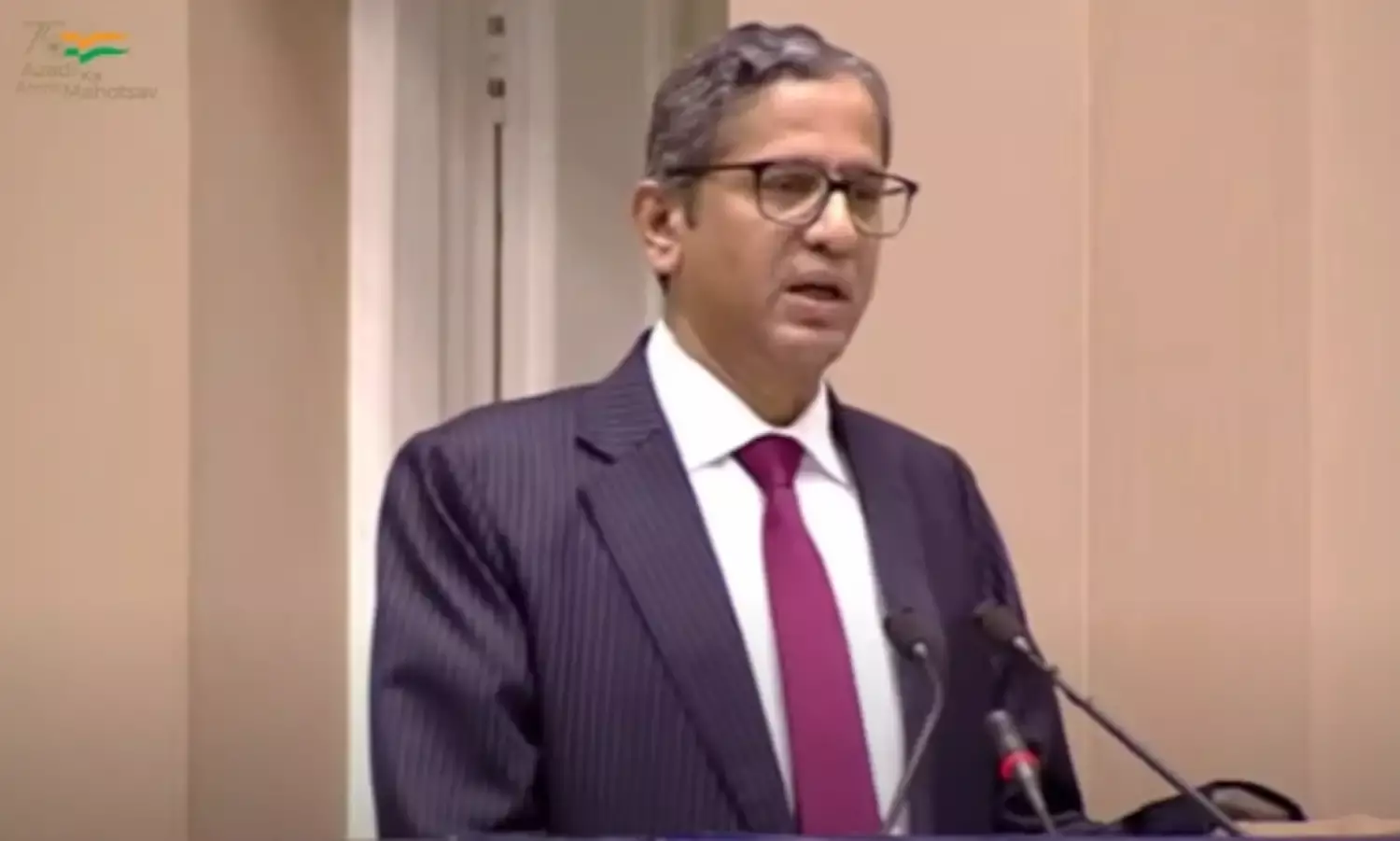Only The Judicial Process Is Adversarial, Not Judges Or Their Judgments: Chief Justice Ramana

While speaking at the 11th Joint Conference of the Chief Ministers and Chief Justices at Vigyan Bhawan, New Delhi, Chief Justice N. V. Ramana said that it is only the judicial process that is adversarial, not the judges or their judgments.
"We are merely discharging our constitutionally assigned role. Judgments are meant for delivering justice and should be seen as such", the CJI added.
The conference was attended by the Prime Minister, Law & Justice Minister, Chief Ministers of many states, Judges of the Supreme Court and the Chief Justices of many High Courts.
The CJI said that "While discharging our duties, we all must be mindful of the Lakshman Rekha. The judiciary would never come in the way of governance, if it is in accordance with law. We share your anxiety and concern regarding the welfare of the people".
He then went on to highlight the factors for docket explosion in the Indian scenario.
He said that if a Tehsildar acts upon a grievance of a farmer regarding land survey, or a ration card, the farmer would not think of approaching the court. If a municipal authority or a gram panchayat discharges its duties properly, the citizens need not look to courts.
He said, if revenue authorities acquire land through due process of law, the courts would not be burdened by land disputes. Apparently, these cases account for 66% of the pendency.
He said that it is beyond his understanding as to why intra and inter departmental disputes of the Government or fights between PSUs and the government end up in courts.
"If service laws are applied fairly in matters of seniority, pension and so on, no employee will be compelled to go to courts. It is a well acknowledged fact that the governments are the biggest litigants accounting for nearly 50% of the cases", the CJI said.
He said that if police investigations are fair, if illegal arrests and custodial torture come to an end, then no victim will have to approach the courts. The CJI added that opinions of legal departments are not sought in the rush to implement executive decisions.
He added that the lack of special prosecutors and standing counsels is one of the major issues that needs to be addressed.
"The decisions of courts are not implemented by Governments for years together. The resultant contempt petitions are a new category of burden on the Courts, which is a direct result of the defiance by the Governments. Deliberate inactions by the Governments, despite judicial pronouncements, are not good for the health of democracy", Justice Ramana said.
He said that though policy making is not the judiciary's domain, but, if a citizen comes to the court with a prayer to address his grievance, the courts cannot say no.
He said that ambiguities in legislations also add to existing legal issues. "The legislature is expected to solicit the views of the public and debate the bills, clause by clause, threadbare, before enacting a law" he said while clarifying that his remark about the passing of laws without much legislative scrutiny on the 15th of August last year was misunderstood by some quarters.
While summarizing the reasons, which according to him, were responsible for increasing the burden on courts, he said, "One is, non-performance by the various wings of the executive. Second is, the Legislature not realizing its full potential."
"I have been a strong proponent of "Indianization of the Justice Delivery System". By Indianisation, I mean increasing accessibility by moulding the system to suit the needs and sensibilities of the Indian population", Justice Ramana said while speaking about the need to improve judicial infrastructure.
On judicial appointments, the CJI said that as on today, out of 1104 sanctioned posts of High Court Judges, there are 388 vacancies. "From day one, it has been my endeavour to fill judicial vacancies. We have made 180 recommendations, for appointments in various High Courts during the last year. Out of this, 126 appointments have been made. I thank the Government of India for clearing the names. However, 50 proposals are still awaiting approval by the Government of India. The High Courts have sent around 100 names to the Government of India. They are yet to reach us", he said.
Click here to read/download the full text of the speech

